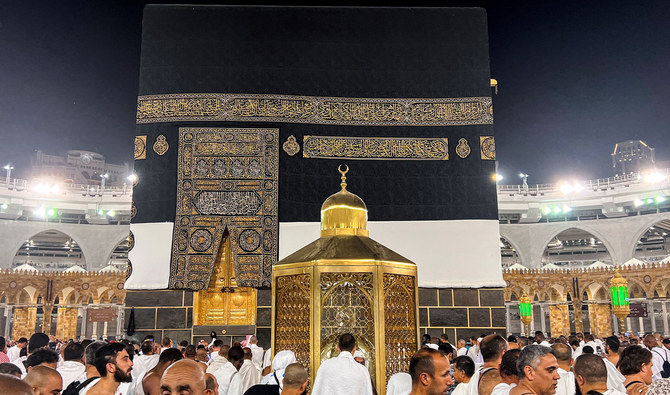ISLAMABAD: Pakistani startups, MyTM and Zindigi, have partnered with JS Bank and MasterCard to unveil the Sullis Hajj Card, a “revolutionary” financial product designed to provide pilgrims a cashless experience during their spiritual journey, a senior MyTM official said on Monday.
MyTM, a Pakistan-based startup with operations in the Kingdom, offers digital payments and financial services, while Zindigi is one of the first fully digital banks of Pakistan that offers unprecedented personalization to its customers.
Traditionally, the Hajj journey involves numerous financial transactions from visa fees to accommodation and transportation. The Sullis Hajj Card encapsulates the concept of internationally enabling pilgrims to manage their expenses without the need to carry cash.
“For the first time in Pakistan, this initiative enables a cashless Hajj in the first phase and later on Umrah experience, offering ease of transactions with reduced charges and almost no taxes otherwise applicable on all traditional cards during international transactions,” Jawad Mahmood, chief executive officer of MyTM Saudi Arabia, told Arab News on the sidelines of the Sullis Hajj Card launch in Islamabad.

Officials from Pakistani startup MyTM, JS Bank, Zindigi, and Mastercard launched the Sullis Hajj Card in Islamabad, Pakistan on May 6, 2024, to provide pilgrims with a cashless experience during the annual pilgrimage. (AN Photo)
Through this card, he said, MyTM, Zindigi, JS Bank, and MasterCard were collaborating to offer pilgrims favorable exchange rates, easy money withdrawal and a wide acceptability across Saudi Arabia and other parts of the world.
Hajj is one of the five pillars of Islam and requires every adult Muslim to undertake the journey to the holy Islamic sites in Makkah at least once in their lifetime if they are financially and physically able.
Pakistan has a Hajj quota of 179,210 pilgrims this year. Of them, 63,805 pilgrims will be performing the pilgrimage under the government scheme, while the rest would be accommodated by private tour operators, according to the Pakistani religious affairs ministry.
The Hajj card will be launched for public on May 15, with applications opening through the MyTM app, according to the MyTM Saudi Arabia official. The innovative financial product is a great example of moving forward on Pakistan’s national financial inclusion policy and Saudi Arabia’s Vision 2030 as both governments are currently focusing on digital economy.
“Right now, a lot of people who are going there face a lot of issues sometimes they have some currency exchange issues, sometimes they get high rates and sometimes they lose their money,” Mahmood said, adding the initiative would not only enhance convenience but also increase financial security of pilgrims performing Hajj and Umrah.
Rizwan Saeed Qureshi, an additional secretary for the Middle East in Pakistan’s foreign ministry, termed the Hajj card a “good omen” for Pakistan’s fintech sector.
“This is the first-ever pilot to the best of our understanding for cashless Hajj to start with and certainly subsequently Umrah,” he told Arab News.
“Hopefully it will succeed as a pilot and then expand in terms of its implementation, in terms of its application, in terms of its coverage to the entire Hajj operation.”
This year’s pilgrimage is expected to run from June 14 till June 19.











